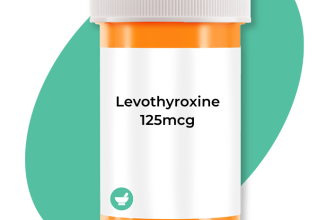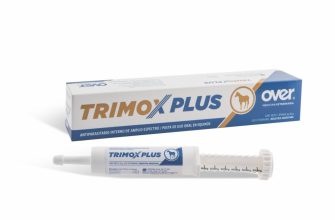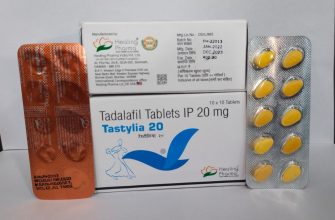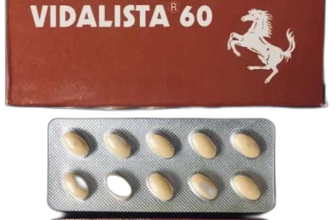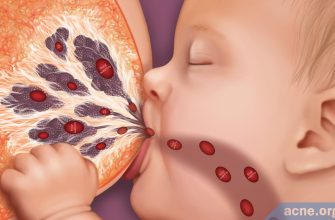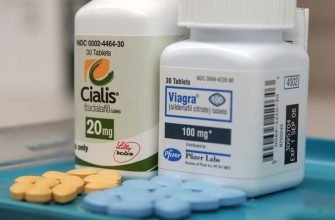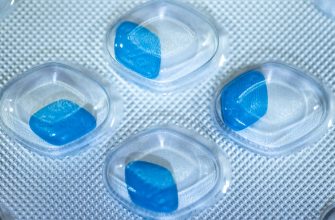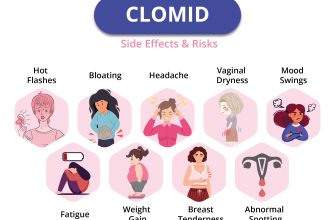Experiencing nasal congestion while taking Cialis? Try these simple strategies: Staying well-hydrated by drinking plenty of water throughout the day can significantly alleviate congestion. Also, consider using a saline nasal spray; it gently clears nasal passages without harsh chemicals.
Certain over-the-counter medications can help. Decongestants like pseudoephedrine or phenylephrine, available at most pharmacies, may offer temporary relief. However, always check for potential interactions with Cialis before using any new medication. Consult your doctor or pharmacist for personalized advice.
For persistent or severe congestion, consult your doctor. They can explore underlying causes and recommend appropriate treatments, potentially including prescription nasal sprays or other therapies. Ignoring persistent congestion isn’t advisable; address it to maintain your overall well-being.
Remember, this information is for guidance only and doesn’t substitute professional medical advice. Always discuss your health concerns with a qualified healthcare provider before making any decisions related to your medication or treatment.
- Cialis Nasal Congestion Relief: A Detailed Guide
- Understanding Cialis and Nasal Congestion
- Managing Congestion
- When to See a Doctor
- Alternative Approaches
- Important Note
- Lifestyle Adjustments
- Understanding Cialis and Nasal Congestion
- The Link Between Cialis and Nasal Congestion: Mechanism of Action
- Frequency and Severity of Cialis-Induced Nasal Congestion
- Managing Cialis-Induced Nasal Congestion: Home Remedies
- Using a Humidifier
- Over-the-Counter Remedies
- Over-the-Counter Medications for Relief
- Antihistamines
- Saline Nasal Spray
- Pain Relievers
- When to Consult a Doctor Regarding Nasal Congestion
- Severe Symptoms
- Other Concerning Symptoms
- Alternative Treatments and Lifestyle Changes
- Hydration is Key
- Lifestyle Adjustments for Relief
- Natural Remedies
- When to See a Doctor
Cialis Nasal Congestion Relief: A Detailed Guide
Experience nasal congestion after taking Cialis? Try over-the-counter decongestants like pseudoephedrine or phenylephrine. These medications can help alleviate stuffiness.
Understanding Cialis and Nasal Congestion
Cialis, a medication for erectile dysfunction and benign prostatic hyperplasia (BPH), sometimes causes nasal congestion as a side effect. This occurs due to the medication’s impact on blood vessels. The congestion usually is mild and temporary.
Managing Congestion
Beyond decongestants, saline nasal sprays can help moisten nasal passages and provide relief. Staying hydrated by drinking plenty of water also helps thin mucus and ease congestion. Consider elevating your head with extra pillows while sleeping to improve drainage.
When to See a Doctor
If your nasal congestion is severe, persistent, or accompanied by other symptoms like fever, sinus pain, or difficulty breathing, consult your doctor. They can determine the cause and recommend appropriate treatment.
Alternative Approaches
Some find relief using a cool-mist humidifier. This adds moisture to the air, which can soothe irritated nasal passages. Avoid irritants like smoke and strong smells to minimize nasal inflammation.
Important Note
Always consult your doctor before starting any new medication, including over-the-counter remedies, especially if you are already taking Cialis or have underlying health conditions. They can help assess potential interactions and ensure the safest course of action.
Lifestyle Adjustments
Regular exercise and a healthy diet contribute to overall well-being, potentially improving your body’s ability to manage side effects like nasal congestion.
Understanding Cialis and Nasal Congestion
Cialis, while effective for erectile dysfunction, can sometimes cause nasal congestion as a side effect. This usually manifests as a stuffy or blocked nose. The severity varies considerably between individuals; some experience mild discomfort, while others find it more bothersome.
Why does this happen? Cialis’s mechanism of action involves relaxing blood vessels. This beneficial effect in the penis can unfortunately also lead to vasodilation in the nasal passages, causing increased blood flow and subsequent congestion.
How long does it last? The nasal congestion typically appears shortly after taking Cialis and usually subsides within a few hours. In rare cases, it can persist longer.
What can you do? If you experience mild congestion, it may resolve on its own. For more significant discomfort, over-the-counter nasal decongestants, like saline sprays or pseudoephedrine (check for interactions with Cialis first!), might provide relief. However, always consult your doctor before using any new medication, especially if you have underlying health conditions.
Important Note: This information is for educational purposes only and does not constitute medical advice. Always discuss potential side effects and treatment options with your healthcare provider before starting any new medication.
The Link Between Cialis and Nasal Congestion: Mechanism of Action
Cialis, containing tadalafil, primarily works by inhibiting phosphodiesterase-5 (PDE5). This enzyme breaks down cyclic guanosine monophosphate (cGMP), a crucial molecule for smooth muscle relaxation. By blocking PDE5, Cialis increases cGMP levels, leading to vasodilation – widening of blood vessels.
This vasodilation is responsible for Cialis’s effects on erectile dysfunction. However, it also affects blood vessels throughout the body, including those in the nasal passages. Increased blood flow to the nasal mucosa causes swelling and congestion.
The severity of nasal congestion varies; some men experience mild stuffiness, while others report significant discomfort. This side effect is generally dose-dependent, meaning higher doses of Cialis may lead to more pronounced congestion. Individual sensitivities also play a role; some men are more susceptible than others.
While the mechanism involves simple blood vessel dilation, the exact interplay of factors contributing to the varied severity of nasal congestion remains an area of ongoing research. Factors such as pre-existing nasal conditions might influence the effect.
In summary: Cialis’s effect on nasal congestion stems from its vasodilatory action, a consequence of PDE5 inhibition and increased cGMP. This leads to increased blood flow to the nasal mucosa, causing swelling and stuffiness.
Frequency and Severity of Cialis-Induced Nasal Congestion
Nasal congestion is a common side effect of Cialis, affecting a significant portion of users. Studies show this side effect occurs in approximately 10-15% of men taking the medication. The severity varies greatly from person to person.
The congestion typically manifests as stuffiness or a blocked nose. Some men experience mild discomfort, while others report more significant nasal blockage. It’s rarely severe enough to require medical intervention.
- Mild Cases: May cause minor inconvenience, easily managed with over-the-counter decongestants.
- Moderate Cases: Can be more bothersome, potentially affecting sleep or daily activities. May benefit from nasal sprays or other treatment options discussed with a doctor.
- Severe Cases: Less frequent, these cases can significantly impact quality of life. Immediate consultation with a healthcare professional is recommended.
The onset of nasal congestion typically occurs within a few hours of taking Cialis and usually resolves within 24 hours. However, the duration can vary. If congestion persists for extended periods, consult a doctor.
- Timing: Note when the congestion starts and how long it lasts. This helps in assessing severity.
- Severity: Describe the level of discomfort. A simple scale (mild, moderate, severe) can aid communication with your doctor.
- Other Symptoms: Report any accompanying symptoms, such as headache or dizziness. This allows for a more thorough evaluation.
Remember to discuss any concerns about Cialis-induced nasal congestion with your physician. They can offer personalized advice and explore alternative treatment options if needed.
Managing Cialis-Induced Nasal Congestion: Home Remedies
Try a saline nasal spray. This simple solution helps rinse nasal passages, clearing congestion naturally. Use it several times a day as needed.
Increase your fluid intake. Drinking plenty of water thins mucus, making it easier to drain. Aim for at least eight glasses daily.
Elevate your head. Sleeping with your head raised on extra pillows can improve drainage and reduce stuffiness. A small wedge pillow can be particularly helpful.
Using a Humidifier
Consider using a cool-mist humidifier. Adding moisture to the air can soothe irritated nasal passages and loosen congestion. Clean your humidifier regularly to prevent mold growth.
Over-the-Counter Remedies
Explore over-the-counter decongestants. Pseudoephedrine or phenylephrine nasal sprays can provide temporary relief. However, always follow the instructions carefully and avoid prolonged use.
| Remedy | How it helps | Caution |
|---|---|---|
| Saline Spray | Rinses nasal passages | None, generally safe |
| Hydration | Thins mucus | Monitor for excessive fluid intake |
| Head Elevation | Improves drainage | Ensure comfortable sleeping position |
| Humidifier | Adds moisture to air | Clean regularly to prevent mold |
| Decongestant Sprays | Provides temporary relief | Avoid prolonged use; follow instructions |
If congestion persists or worsens, consult your doctor. They can provide further guidance and rule out other potential causes.
Over-the-Counter Medications for Relief
Consider decongestants like pseudoephedrine or phenylephrine. Pseudoephedrine is generally more effective, but it’s behind the counter in some locations due to methamphetamine production concerns. Phenylephrine is available over-the-counter, though it may be less potent for some individuals.
Antihistamines
Antihistamines, such as cetirizine or diphenhydramine, can help with nasal congestion caused by allergies contributing to Cialis-induced congestion. Remember to check for interactions with Cialis before combining medications. Diphenhydramine can cause drowsiness, so avoid driving or operating machinery after taking it.
Saline Nasal Spray
A saline nasal spray helps rinse nasal passages, removing irritants and thinning mucus. Use this regularly to alleviate congestion. It’s a gentle, drug-free option suitable for frequent use.
Pain Relievers
For headaches or other pain associated with nasal congestion, acetaminophen or ibuprofen can provide relief. Follow the dosage instructions carefully. Always consult a doctor if you have concerns about medication interactions or if pain persists.
When to Consult a Doctor Regarding Nasal Congestion
Seek medical advice if your nasal congestion lasts longer than 10 days, despite using over-the-counter remedies. This prolonged congestion could indicate a more serious underlying condition.
Severe Symptoms
Immediate medical attention is necessary if you experience severe symptoms such as high fever (over 101°F), severe headache, facial pain, or difficulty breathing. These could be signs of a sinus infection or other serious illness.
Other Concerning Symptoms
Consult your doctor if you notice green or yellow nasal discharge, persistent cough, or a change in the color or consistency of your nasal discharge. These symptoms could suggest a bacterial infection.
Note: If you have pre-existing medical conditions, such as heart disease or high blood pressure, discuss nasal congestion treatment with your physician before using any medication, including Cialis.
Alternative Treatments and Lifestyle Changes
Consider saline nasal sprays. These help rinse nasal passages, clearing congestion naturally. Use them several times daily for optimal results.
Hydration is Key
Drink plenty of water throughout the day. Dehydration can worsen congestion. Aim for at least eight glasses of water daily.
Lifestyle Adjustments for Relief
- Elevate your head: Sleeping with your head slightly elevated can improve drainage and reduce nighttime congestion. Use extra pillows for support.
- Humidify your environment: Dry air exacerbates congestion. A humidifier adds moisture to the air, easing breathing. Consider a cool-mist humidifier to avoid burns.
- Avoid irritants: Identify and minimize exposure to irritants like smoke, dust, and strong scents that may trigger or worsen congestion. This includes perfume and cleaning products.
- Manage allergies: If allergies contribute to your nasal congestion, work with your doctor to develop an allergy management plan. This might include allergy medication or immunotherapy.
Natural Remedies
- Try a neti pot: A neti pot is a small pot used to rinse nasal passages with saline solution. Follow instructions carefully to prevent infections.
- Consider eucalyptus: Inhaling eucalyptus steam (carefully, to avoid burns) can help open up airways. Add a few drops of eucalyptus essential oil to hot water, cover your head with a towel, and inhale the steam for a few minutes.
Remember to consult your doctor before starting any new treatment, especially if you have underlying health conditions. They can provide personalized advice and rule out any serious causes of your congestion.
When to See a Doctor
Persistent or severe congestion that doesn’t respond to these measures warrants a doctor’s visit. They can diagnose the underlying cause and recommend appropriate treatment.


